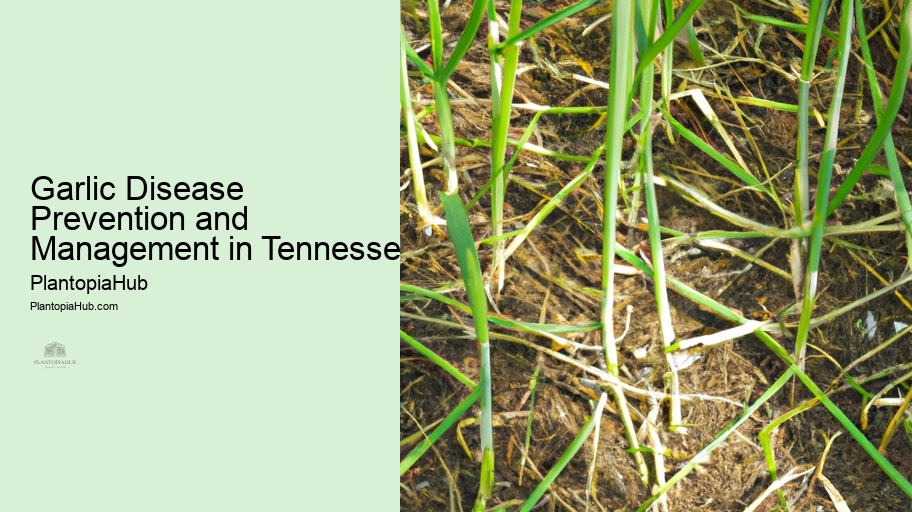

Garlic has a rich history in Tennessee's agricultural heritage. Organic Farming Certifications Explore the historical significance of garlic in the region, tracing its roots back to Native American cultivation and its integration into Southern cuisine.
Discover how garlic has evolved from a niche crop to a staple ingredient in Tennessee kitchens, reflecting changing culinary preferences and cultural influences.
In conclusion, understanding the role of garlic in Tennessee's agricultural history can deepen your appreciation for this versatile crop and its place in local culture.
When to Plant Garlic in Tennessee .Hosting garlic tasting events and farm tours can be a delightful way to connect with your community and showcase your Tennessee garlic farm. Invite visitors to experience the unique flavors of different garlic varieties and learn about your farming practices.
Educate participants about the benefits of homegrown garlic and offer them a memorable, immersive experience. These events can also boost your farm's visibility and sales.
In conclusion, organizing garlic tasting events and farm tours adds a personal touch to your garlic farming business in Tennessee and fosters connections with garlic enthusiasts.
Garlic farming can contribute to a healthy ecosystem in Tennessee. By planting native flowers, herbs, and cover crops alongside garlic, you can support pollinators and beneficial insects.
Biodiversity on your farm can help control pests naturally, reduce the need for chemical interventions, and promote soil health. It's a sustainable approach that benefits both your garlic crop and the environment.
In conclusion, integrating biodiversity into your garlic farming practices can enhance the overall health of your Tennessee farm while minimizing ecological impact.
Gardening Workshops and Seminars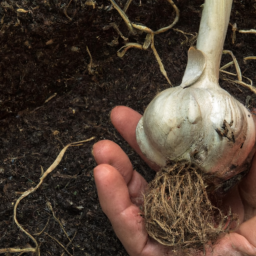
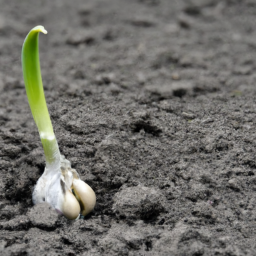
Homegrown garlic in Tennessee offers numerous nutritional advantages. Freshly harvested garlic retains its full flavor and nutritional value, containing essential vitamins, minerals, and antioxidants.
Consuming homegrown garlic can boost your immune system, improve heart health, and provide a rich source of vitamins like C and B6. Its culinary versatility makes it a valuable addition to any diet.
In conclusion, recognizing the nutritional benefits of homegrown garlic in Tennessee can encourage individuals to incorporate this healthy ingredient into their meals.
Organic garlic-based pesticides can be a valuable addition to your toolkit as a Tennessee farmer. Garlic contains natural compounds that repel pests and discourage fungal growth. Create your own garlic pesticide by blending garlic cloves with water and a small amount of liquid soap. This homemade solution is effective against common garden pests.
Using DIY garlic-based pesticides aligns with organic farming principles, promoting a healthy and pest-resistant garlic crop.
In conclusion, incorporating homemade garlic-based pesticides into your organic farming practices can help maintain a thriving and pest-free garlic crop in Tennessee.
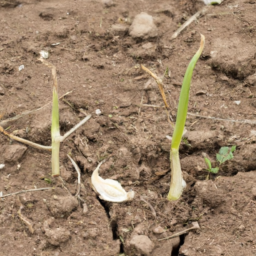
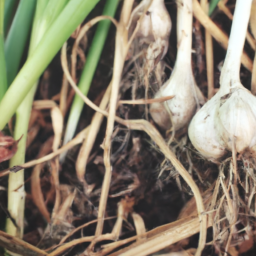
Presentation is key when selling garlic at farmers' markets in Tennessee. Clean and trim your garlic bulbs for an attractive appearance. Arrange them neatly in baskets or on display tables. Consider offering garlic in various packaging sizes to cater to different customer preferences.
Highlight the unique qualities of your garlic, such as its flavor, variety, and organic certification. Urban Gardening Techniques Engage with customers and share your passion for garlic farming to build trust and loyalty.
In conclusion, effective presentation and engagement techniques can enhance your garlic sales at farmers' markets in Tennessee, attracting customers and boosting your brand.
Hosting garlic braiding workshops can be a fun and educational addition to your Tennessee garlic farm. Invite participants to learn the art of garlic braiding, a traditional skill that adds value to garlic bulbs.
Share techniques for creating beautiful garlic braids, and allow attendees to take home their creations. These workshops not only generate additional income but also foster a sense of community around your farm.
In conclusion, offering garlic braiding workshops is a unique way to engage with your local community and promote your garlic farm in Tennessee.
USDA Organic Certification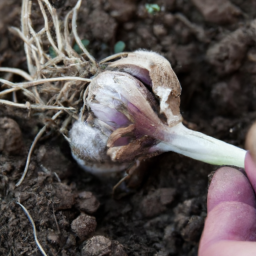
Crop insurance is essential for garlic farmers in Tennessee because it provides financial protection against unforeseen events that can impact crop yields, such as adverse weather conditions or crop failures. By investing in crop insurance, garlic farmers can secure their income and minimize potential losses, ensuring financial stability and peace of mind during challenging seasons.
Creating a customized garlic planting calendar for your Tennessee location involves considering factors like frost dates, local climate variations, and the garlic varieties you plan to grow. Start by determining the average date of the first fall frost and work backward to establish planting dates. It's important to align your calendar with your specific microclimate and garlic variety requirements, ensuring the best timing for planting and harvesting.
To protect your garlic crop from winter frost in Tennessee, consider applying a thick layer of mulch, such as straw or leaves, around your garlic plants in late fall. This mulch acts as insulation, preventing the soil from freezing and safeguarding the garlic bulbs. In extremely cold regions, you can also use row covers or cloches to provide additional frost protection. Be sure to maintain proper airflow to avoid condensation, which can lead to mold and rot.
The optimal time for planting garlic in Tennessee typically falls between late September and early November. It's important to consider your specific location within the state, as warmer regions may benefit from earlier planting in September, while cooler areas may choose a late October start. Monitoring local temperature trends and referring to the USDA hardiness zone map for Tennessee can help determine the best planting window.